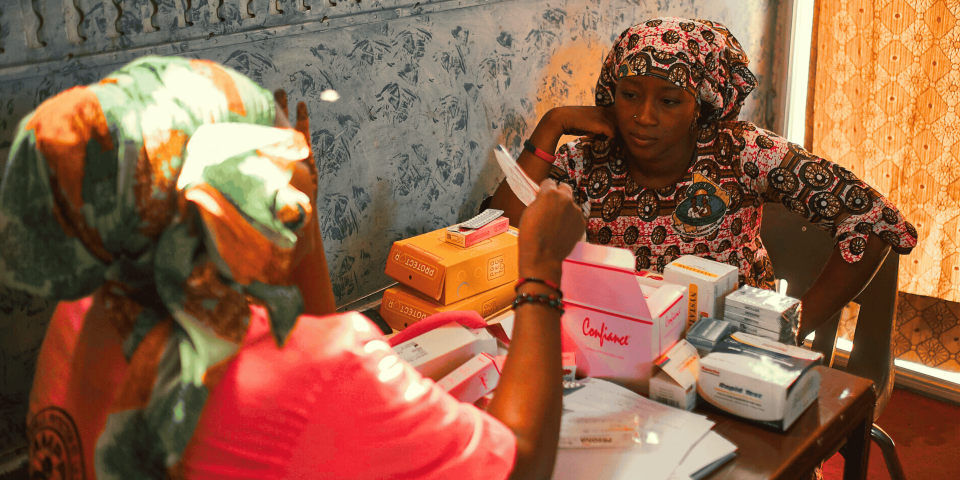The Trump Administration took a cruel and ideologically driven decision to destroy $10 million worth of life-saving contraceptives – resources that were procured by U.S. taxpayer funds to support critical health needs in partner countries across the Global South, including those of 218 million women facing an unmet need for contraceptive care.
Lives in the Balance
The human cost of destroying these supplies would be devastating. If this stockpile is incinerated, experts warn it could lead to 362,000 unintended pregnancies, over 160,000 unsafe abortions, and more than 700 preventable deaths from pregnancy-related causes. These aren’t just numbers – they represent real people: the young woman in a conflict zone who might face a life-threatening pregnancy because family planning wasn’t available, or the teenage girl who could stay in school and plan her future if she had access to contraception. These contraceptives are more than just medical products; they are lifelines.
“77% of these life-saving products were destined for the Democratic Republic of the Congo, Kenya, Tanzania, Zambia, and Mali. In Tanzania alone, they account for one third of the country’s total annual need of the health system. Translating it into people – this destruction would deny almost 1.5 million women and girls access to care that could save their lives.” – Micah Grzywnowicz, Regional Director of IPPF European Network, highlighting the scale of what’s at stake.
In Kigoma, Tanzania, frontline health workers are struggling to respond to growing shortages of contraceptives after U.S. funding withdrawals.
“The most recent shortage of implants has impacted the communities and affected our services provision … We are struggling … And we have encountered many women in the community are struggling.” – Dr Omary Bakari, Project Coordinator, U-MKOBA Project in Kigoma, Tanzania
Dr Bakari has testified to the shortage in supply, a stark reminder that every pallet of contraception destroyed means fewer options, fewer choices, and greater risks for millions of women. As Nico Bogaerts, Executive Director of Sensoa put it, “This decision has tragic consequences for the future of millions of women. It is also a pure waste of much-needed contraceptives and millions of dollars.” NGOs, including IPPF, and governments have offered to take charge of the stockpile, and medical teams stand ready to deliver the supplies to the women who need them. The only thing that stands in between is political will to do the right thing.
We Will Not Stand Down
For those of us who believe in human dignity and the right to healthcare, we will not stand down. From Europe to the United States, a coalition of voices is rising in protest. Yesterday in Brussels, activists and health workers took a stand, and their message was clear:
“Trump’s administration hoped that no one would notice that he is putting the future of millions of women in the Global South at risk. Nothing could be further from the truth. We stand here today in solidarity with these women.” – Nico Bogaerts, Executive Director, Sensoa
That determination is shared across borders. More than 70 organisations from around the world – including American and African partners – have joined forces, urging the U.S. government to cancel the destruction plan. Even members of the U.S. Congress across the political divide have voiced alarm, noting that these supplies were intended to save lives in humanitarian crises. This is a matter of basic humanity.
At its core, this struggle is about who gets to control the future for millions of women.
“Make no mistake: this is not an accident; this is not a bureaucratic oversight. This action is deliberate and it is a part of a long-term game of dismantling global public health efforts. It is about control – control of our bodies, our health, and our choices and decisions about our lives.”
Micah Grzywnowicz
M
Indeed, the threat to torch these contraceptives is seen as part of a broader assault on women’s rights and health. But we refuse to accept that. People’s lives are not chess pieces in someone’s political game. We are pushing back – and we expect our leaders to do the same.
Now is the time for the European governments and the European Union, to show up to the values of human rights, equality and compassion. European officials and Belgian authorities have already taken encouraging steps; the regional government in Flanders has reiterated that the incineration ban on still-usable medicines applies to the supplies, and Belgian diplomats were in talks with their U.S. counterparts. But much more is needed. This is a moment for Europe to raise its voice loud and clear, and to use its diplomatic weight to protect the lives at stake.
Calls to Action
The demands of this campaign are simple and grounded in basic decency.
The U.S. Administration must immediately halt the destruction and sign over the supplies to aid organisations
The Belgian Federal and Flemish governments must explore all possible avenues and do everything in their power to save the supplies
The European Union must act urgently to uphold its values and commitments, explore all legal and diplomatic avenues, support Belgium in its diplomatic endeavour towards the US, and ensure that life-saving supplies are not wasted.
We will continue to raise our voices, rally our partners, and shine a spotlight on this needless tragedy in the making. We urge our colleagues, supporters, and every concerned citizen to join us in this call. Share accurate information online and join the protests. Together, let’s ensure the global chain of life-saving supplies make it to the women and communities who need them, where they belong. Lives are at stake, and we will not rest until reproductive justice prevails.



